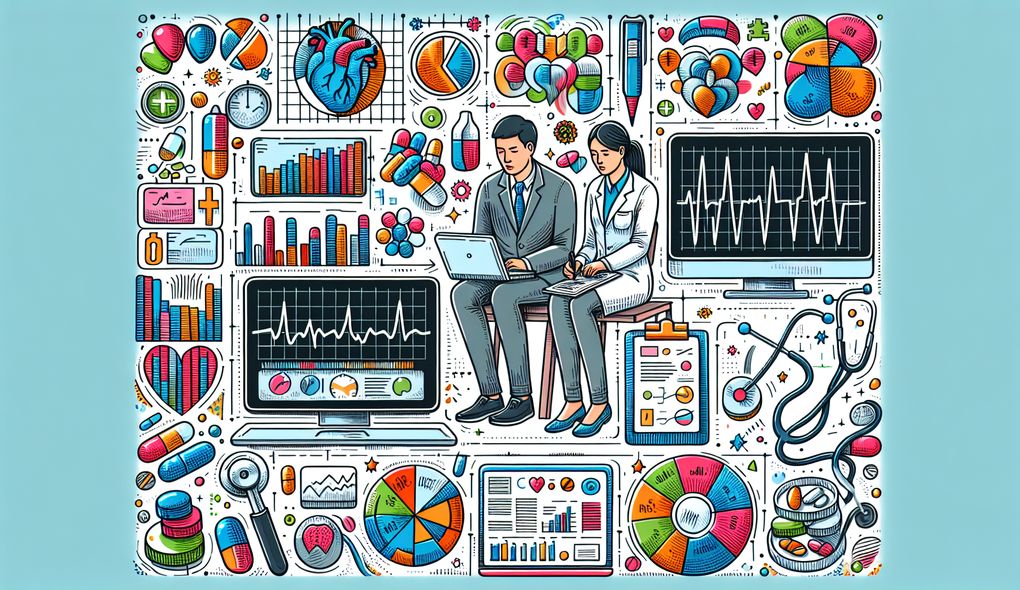What role do you think data analytics plays in evidence-based decision-making and strategic planning?
SENIOR LEVEL

Sample answer to the question:
Data analytics plays a crucial role in evidence-based decision-making and strategic planning. By analyzing complex healthcare data, we can identify trends and insights that can lead to improvements in patient care and health system efficiency. For example, we can identify areas where resources are being underutilized or areas where there are gaps in care delivery. This information can then be used to make data-driven decisions on resource allocation and strategy development. Data analytics also helps in evaluating the effectiveness of interventions and determining the return on investment. Overall, it enables us to make informed decisions and prioritize actions based on solid evidence.
Here is a more solid answer:
Data analytics plays a critical role in evidence-based decision-making and strategic planning in healthcare. As a health data analyst, I have utilized advanced analytical skills to analyze complex healthcare data and identify trends and insights. For instance, I have conducted statistical analysis on large datasets to uncover patterns in patient outcomes and healthcare utilization. This analysis has helped me identify areas for improvement such as reducing hospital readmissions or optimizing resource allocation. Additionally, my excellent communication and report writing skills have allowed me to translate complex data into actionable insights for non-technical stakeholders. Collaboration is essential in this role, and I have worked closely with healthcare providers, policy makers, and other stakeholders to ensure data-driven decision-making. I have also demonstrated strong organizational and project management skills by designing and implementing robust data management systems and processes. Attention to detail is paramount in data analytics to ensure data accuracy and integrity across multiple databases and platforms. Furthermore, my leadership abilities have been put to use in mentoring junior analysts and guiding them on best practices and analytical techniques. Lastly, my innovative thinking and focus on continuous improvement have led me to stay up-to-date with the latest trends and advancements in health data analytics, ensuring that my work has a positive impact on healthcare outcomes.
Why is this a more solid answer?
The solid answer goes beyond the basic answer by providing specific examples and details that demonstrate the candidate's skills and experience in the evaluation areas. However, it can be further improved by incorporating more information about the candidate's expertise in statistical analysis software, database management systems, and data visualization tools.
An example of a exceptional answer:
Data analytics plays a pivotal role in evidence-based decision-making and strategic planning in healthcare. As a Senior Health Data Analyst with over 5 years of experience, I have honed my analytical skills to uncover valuable insights from complex healthcare data. For instance, in my previous role, I conducted a comprehensive analysis of electronic health records (EHR) data to identify patterns in disease prevalence and treatment outcomes. This analysis enabled the development of targeted interventions to improve patient outcomes and reduce healthcare costs. My expertise in statistical analysis software such as SAS, R, and Python has allowed me to conduct advanced modeling to predict healthcare utilization and forecast resource needs. I have also demonstrated proficiency in managing large datasets and ensuring data accuracy by employing database management systems like SQL and data validation techniques. To effectively communicate these insights, I have utilized data visualization tools such as Tableau and Power BI to create interactive dashboards and reports for non-technical audiences. In my leadership role, I have mentored junior analysts, fostering a collaborative environment that encourages continuous learning and innovation. As an advocate for continuous improvement, I actively participate in professional development activities, attend conferences, and engage in research and development to stay at the forefront of health data analytics. Through my strong analytical skills, effective communication, collaboration, organizational abilities, attention to detail, leadership, and innovative thinking, I am confident in my ability to drive evidence-based decision-making and strategic planning in healthcare.
Why is this an exceptional answer?
The exceptional answer stands out by providing specific examples of the candidate's experience in using data analytics to drive evidence-based decision-making and strategic planning. The candidate also highlights their expertise in statistical analysis software, database management systems, and data visualization tools. Additionally, the answer demonstrates the candidate's leadership and commitment to continuous improvement. The answer showcases a comprehensive understanding of the role and skills required for the position.
How to prepare for this question:
- Review and strengthen your knowledge of statistical analysis software such as SAS, R, and Python
- Familiarize yourself with database management systems and data validation techniques
- Practice creating reports and visualizations using data visualization tools like Tableau and Power BI
- Seek opportunities to lead and mentor others to enhance your leadership skills
- Stay updated with the latest trends and advancements in health data analytics through conferences, webinars, and research papers.
What are interviewers evaluating with this question?
- Analytical Skills
- Communication Skills
- Collaboration
- Organizational Skills
- Attention to Detail
- Leadership Skills
- Innovative Thinking

